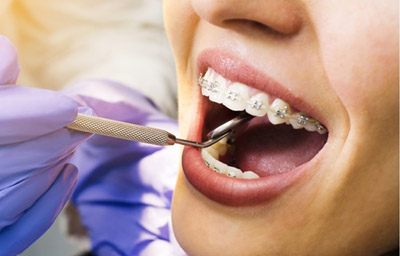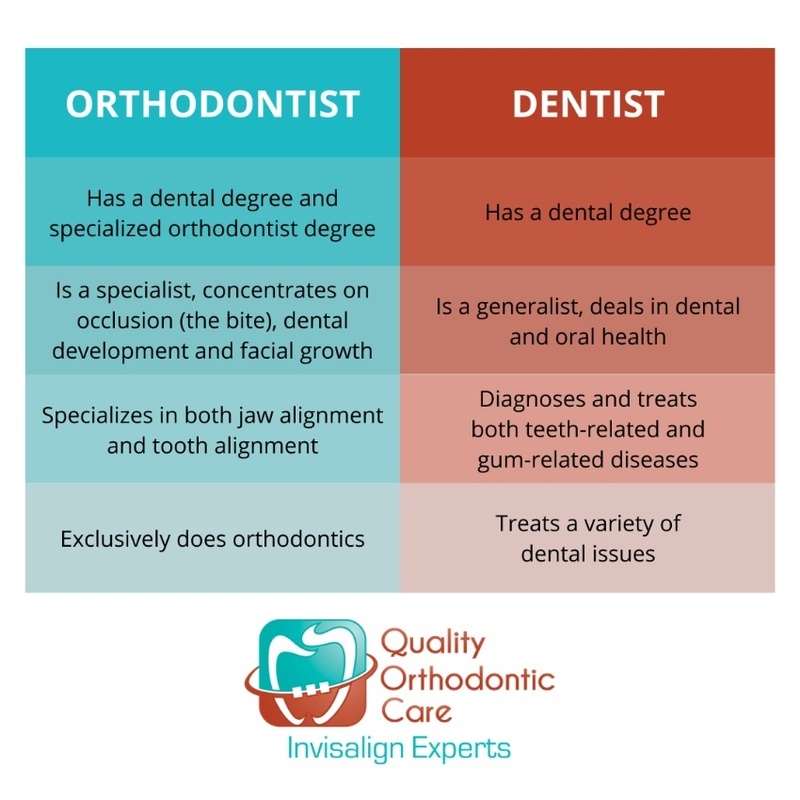All about Causey Orthodontics
All about Causey Orthodontics
Blog Article
Some Known Factual Statements About Causey Orthodontics
Table of ContentsThe Main Principles Of Causey Orthodontics The Only Guide to Causey OrthodonticsCausey Orthodontics - The FactsThe Ultimate Guide To Causey OrthodonticsAn Unbiased View of Causey OrthodonticsCausey Orthodontics Can Be Fun For EveryoneThe smart Trick of Causey Orthodontics That Nobody is Discussing
What is the distinction between a dentist and an orthodontist? All dental experts, including orthodontists, treat the teeth, gums, jaw and nerves.
Orthodontists and dental experts both supply oral take care of individuals. Orthodontists can work in a dental office and use the exact same therapies as various other dental experts. You can think of both doctors that deal with gum and teeth problems. The major distinction is that coming to be an orthodontist calls for a certain specialized in treating the misalignment of the teeth and jaw.
10 Simple Techniques For Causey Orthodontics
An orthodontist is a dental professional that has actually undertaken training to concentrate on the diagnosis, prevention and treatment of irregularities in the jaw and teeth. Their training includes fixing these existing problems. They can likewise determine potential troubles in teeth placement that may establish when problems are left neglected. Orthodontists can aid people of all ages.
This includes all the needed education and learning to become a basic dental expert. According to the American Student Dental Organization (ASDA), it means you will require to have either a Physician of Medication in Dental Care (DMD) or a Physician of Oral Surgery (DDS). Simply put, orthodontists need to finish oral college and afterwards get an orthodontics specialty education.
Some orthodontists additionally get their masters in craniofacial biology. These programs focus on 2 certain areas or disciplines: Dentofacial Orthopedics: This research study focuses on directing teeth and jaw development.
Excitement About Causey Orthodontics

 These include apparatus such as dental braces, retainers and Invisalign. What does an orthodontist do, and what do they concentrate on? The general objective of an orthodontist is to improve an individual's bite. Not everyone is born with straight teeth, and an orthodontist will ensure that patients obtain evenly spaced straight teeth.
These include apparatus such as dental braces, retainers and Invisalign. What does an orthodontist do, and what do they concentrate on? The general objective of an orthodontist is to improve an individual's bite. Not everyone is born with straight teeth, and an orthodontist will ensure that patients obtain evenly spaced straight teeth.
What Does Causey Orthodontics Mean?
The American Organization of Orthodontists suggests your first check up by age 7. You'll require to see your orthodontist if you have an imbalance in your teeth, likewise referred to as malocclusion. Also, if you observe irregular bite patterns, a somewhat misshapen jaw, or when your teeth are overcrowded, you will likely require orthodontic treatment.
In enhancement, we offer adjustable treatment schedules, adaptable payment choices and an enjoyable, pleasurable experience.
An orthodontist is a dentist educated to diagnose, avoid, and treat teeth and jaw irregularities. Orthodontists work with individuals of all ages, from kids to grownups (http://nationadvertised.com/directory/listingdisplay.aspx?lid=47986).
How Causey Orthodontics can Save You Time, Stress, and Money.
Malocclusion, or misaligned teeth, can lead to oral problems, consisting of dental caries, gum tissue illness, and tough or uncomfortable chewing. Not every person is born with straight teeth. If you have a poor bite or large areas in between your teeth, you may intend to seek advice from a dental professional specializing in orthodontic treatment.
(Photo Credit Scores: DigitalVision/Getty Images) Orthodontists make use of taken care of and detachable dental tools, like dental braces, retainers, and bands, to transform the position of teeth in your mouth. Orthodontic therapy is for dental problems, consisting of: Uneven teethBite issues, like an overbite or an underbiteCrowded teeth or teeth that are also far apartJaw misalignmentThe goal of orthodontic treatment is to enhance your bite.
What Does Causey Orthodontics Mean?

All orthodontists are dental experts, yet not all dentists are orthodontists. Orthodontic residency programs provide intensive, focused direction for dental professionals. They concentrate on 2 locations: How to properly and securely move teeth Exactly how to correctly direct advancement in the teeth, jaw, and faceOnce an orthodontist has completed training, they have the choice to come to be board licensed.
Malocclusion leads to tooth congestion, a twisted jaw, or uneven bite patterns. Malocclusion is normally treated with: Your orthodontist affixes steel, ceramic, or plastic square bonds to your teeth.
4 Easy Facts About Causey Orthodontics Shown
If you have just minor malocclusion, you might have the ability to utilize clear dental braces, called aligners, as opposed to standard dental braces. Some people require a headgear to assist relocate teeth into line with stress from outside the mouth. After braces or aligners, you'll need to use a retainer. A retainer is a custom-made tool that keeps your teeth in place.
Report this page